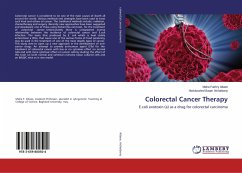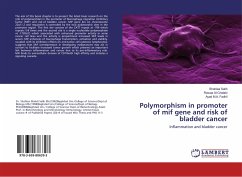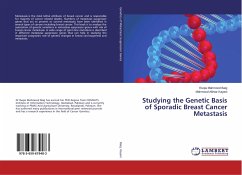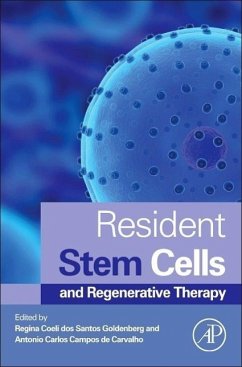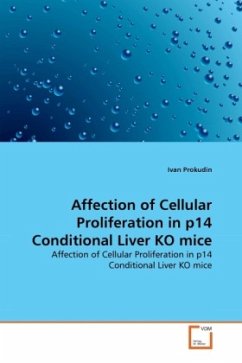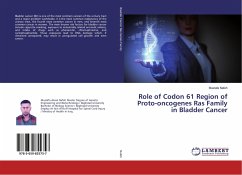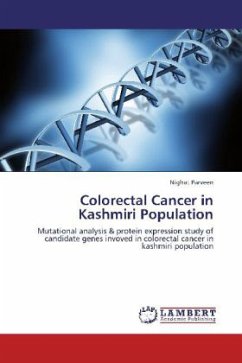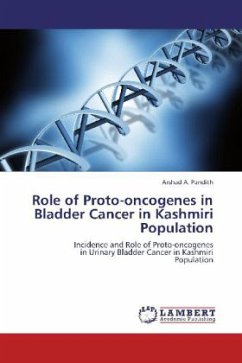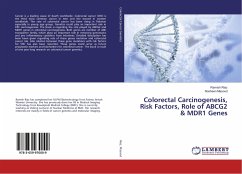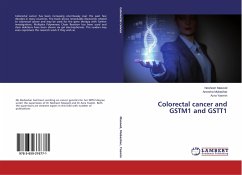
Gene therapy of bladder cancer and colorectal metastasis in the liver
Isulin like growth factor 2 P3 and P4 regulatory sequences controlled suicidal therapy of cancer cells
Versandkostenfrei!
Versandfertig in 6-10 Tagen
39,99 €
inkl. MwSt.

PAYBACK Punkte
20 °P sammeln!
This book describes a PhD research in which the regulatory sequences of IGF2 (P3 and P4 promoters) were used to induce killing of cancer cells in culture or cell of mouse and rat bladder TCCs and of rat colon metastasis to the liver.IGF2 gene was found to be differentially overexpressed in malignant compaired to normal bladder tissue. Moreover, IGF2 mRNA and protein levels were previously shown to be highly upregulated in primary colorectal cancer and in colon metastasis to the liver.IGF2 plays a role in tumor development. It favors cancer cells survival, progression and metastatic ability of ...
This book describes a PhD research in which the
regulatory sequences of IGF2 (P3 and P4 promoters)
were used to induce killing of cancer cells in
culture or cell of mouse and rat bladder TCCs and of
rat colon metastasis to the liver.
IGF2 gene was found to be differentially
overexpressed in malignant compaired to normal
bladder tissue. Moreover, IGF2 mRNA and protein
levels were previously shown to be highly
upregulated in primary colorectal cancer and in
colon metastasis to the liver.
IGF2 plays a role in tumor development. It favors
cancer cells survival, progression and metastatic
ability of the tumor in an autocrine/paracrine
fashion. Therefore, by selective killing of cancer
cells, which overexpress IGF2, the neighboring non-
IGF2 producing tumor cells are at least partly
deprived of their IGF2 supply and thus amplifying
the therapeutic potential of IGF2 promoters driven
vectors. Such vectors were successfully shown in
this work to selectively kill malignant tissue both
in vitro and in vivo.
On the basis of the findings presented in this book,
a patient oriented approach to treat TCC and colon
metastasis in liver is proposed.
regulatory sequences of IGF2 (P3 and P4 promoters)
were used to induce killing of cancer cells in
culture or cell of mouse and rat bladder TCCs and of
rat colon metastasis to the liver.
IGF2 gene was found to be differentially
overexpressed in malignant compaired to normal
bladder tissue. Moreover, IGF2 mRNA and protein
levels were previously shown to be highly
upregulated in primary colorectal cancer and in
colon metastasis to the liver.
IGF2 plays a role in tumor development. It favors
cancer cells survival, progression and metastatic
ability of the tumor in an autocrine/paracrine
fashion. Therefore, by selective killing of cancer
cells, which overexpress IGF2, the neighboring non-
IGF2 producing tumor cells are at least partly
deprived of their IGF2 supply and thus amplifying
the therapeutic potential of IGF2 promoters driven
vectors. Such vectors were successfully shown in
this work to selectively kill malignant tissue both
in vitro and in vivo.
On the basis of the findings presented in this book,
a patient oriented approach to treat TCC and colon
metastasis in liver is proposed.



